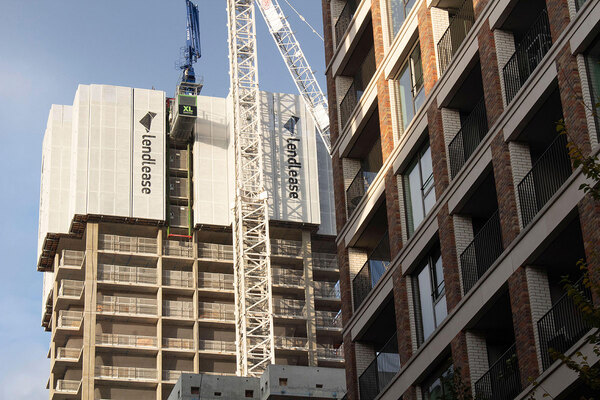You are viewing 1 of your 1 free articles
New act to implement ‘peppercorn’ ground rents achieves Royal Assent
The Leasehold Reform Bill, which aims to drastically reduce ground rent costs for leaseholders, has become law after getting royal assent on Tuesday.
The new act, which applies to England and Wales, restricts ground rent owed on new leases to a token peppercorn rent and aims to make leasehold ownership “fairer and more affordable”.
Breaching the new law will be a civil offence, with fines of between £500 and £30,000 for offenders.
Local authorities, who are expected to enforce the legislation, will be able to keep the financial penalties to fund their enforcement activities.
Ministers first announced plans to tackle leasehold exploitation in July 2017.
In England and Wales, most owner-occupied flats are owned on a long leasehold basis, while shared ownership properties are sold on a long lease.
Leasehold, traditionally used for flats but also applied to new build houses in recent years, means the deedholder does not own their home outright and must usually pay an annual ground rent to the freeholder.
Freeholders are able to increase ground rent at their discretion without providing extra benefit to leaseholders.
Historically, ground rents were set at a peppercorn level but in recent years a practice has emerged of selling properties on long leases with higher ground rents at the start and shorter ground rent review periods.
A 2016 investigation by The Guardian found that some developers were using contracts on leasehold houses to double ground rents every 10 years.
As a result, long leaseholders can quite quickly face “onerous and unsustainable” ground rents.
Higher ground rents can also make it very difficult for leaseholders to sell or re-mortgage their property.
The new law does not include existing leases, the exclusion of which has been criticised as current leaseholders still have to pay out ground rents.
However, the government said that a new bill on broader leasehold reform is expected in the third session of this parliament.
It said it is “committed to comprehensive reform” of the leasehold system.
In January 2021, what was then called the Ministry of Housing, Communities and Local Government announced that part of the reforms would include giving leaseholders the right to extend their leases by up to 990 years.
Eddie Hughes, minister for housing and rough sleeping, said: “I am delighted that we have put an end to ground rent charges for future homebuyers, as our ambitious reforms become law.
“This truly monumental change will set ground rent to zero on new leases from this summer – providing real life benefits to future leaseholders and saving them hundreds of pounds a year.
“This is the first step in a whole raft of government reforms to protect leaseholders and end unfair practices in the market.
“We continue to work towards making it easier, quicker and cheaper for leaseholders to buy their freehold or extend their lease.”
Sign up for our regulation and legal newsletter
Already have an account? Click here to manage your newsletters












